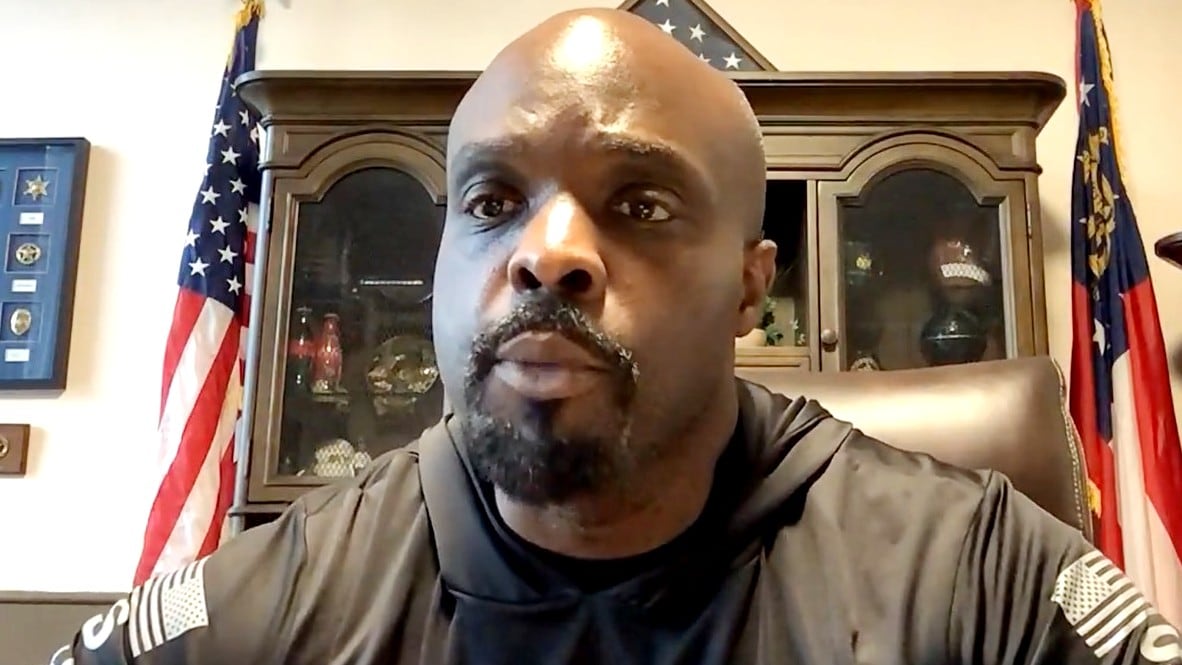12 On Your Side Investigates: Clock is ticking on warranty for your forever home
AUGUSTA, Ga. (WRDW/WAGT) - Summer is not a time to slow down for those buying and selling a home.
Real estate season peaks as families look to move before the start of the new school year.
Building codes are supposed to ensure newly built homes stand the test of time.
And maybe it’s your “forever” home, but the clock is ticking.
Saretha and Dennis Kimble know that now.
They built a home in 2022 deep in the heart of Aiken County, down a long, sandy road, with open space and nobody close to them.
“We were excited to find this land and we were very, very excited to build it,” Saretha said.
Judges, DA, step aside from Burke County sheriff’s cases
Local judges have stepped aside from a civil case involving Alfonzo Williams, but the DA's exit from a criminal investigation of him is more serious.

Until their newly built home began to shift, crack and split apart.
It’s like a sinkhole under their home.
And that was around the time a stroke stole her husband’s eyesight last fall.
Problem after problem started popping up
“Walls crackling, floors down my bed sideways,” she said.
Rachel Igdal is an attorney who represents homeowners in South Carolina.
“I think there are a lot of significant issues that folks don’t know to look for,” she said.
“It’s where you see more extreme cracking along the doors, along the windows, in that stairstep way, that’s something you need to be concerned about.”
Saretha says she’s “beyond frustration.”
Beyond frustration because their home is only three years old and because their home is under a 10-year structure warranty.
“First guy I talked to said, ‘Don’t worry, they got to fix your house because you got a 10-year structure warranty,’” she said.
MORE FROM NEWS 12
12 On Your Side Investigates: Other problems we’ve tackled
- Nearly deadly night ‘could have been stopped way before it happened’
- Crime in downtown Augusta – what the numbers show
- Amid military moving mess, defense chief cuts down on relocations
- Trade-in troubles leave drivers with debt, tag snags
- Unanswered questions surrounding Ga. speed cameras
- Evictions in Richmond County - what to do if you’re behind
- Is PACT Act’s promise to veterans being kept?
But despite stairstep cracking inside the home, a growing sinkhole outside and separated concrete blocks under the home, “they’re saying they’re not responsible,” Saretha said.
New Home Warranty Insurance Co. denied their claim, stating the damage isn’t a structural defect; it’s just the house settling.
The warranty company, its subsidiary and third-party provider did not respond to our questions.
We asked Igdal why dirt and soil impact homebuilding so much.
“You’ve got to have a good basis for building a home on, right?” she said. “Sure, there is going to be some settling over time, but you need to know what type of soil you are building on. You need to know about the history, building on the plasticity, the type of soil, how it retains water.”
South Carolina building code requires a geotechnical investigation of the dirt before construction, but the code also leaves it up to the building official to actually test the soil.
That means the state leaves it up to the county to require it and enforce it.
Aiken County planning and development officials told us they do not have a record of a soil test done on the Kimbles’ property.
The building plans sent to the county show the builder based his design off an assumption the soil would the structure.
“You could be completely diligent and go to your home warranty company could say there is nothing wrong here and you wait outside your three years statute of limitations to file a lawsuit and the first thing the builder is going to say is you should have known,” Igdal said.
Before representing homeowners, she represented builders and contractors on behalf of insurance companies.
“They are aware of those statutes of limitations,” she said. “They can wait the game out. They have the upper hand in that situation.”
Homeowners have six years in Georgia and only three years in South Carolina to pursue legal action after first noticing problems with their newly built home.
MORE INFORMATION
Getting help: In Georgia and South Carolina
- Complaints in South Carolina:
- Builder/contractor: https://eservice.llr.sc.gov/Complaints/
- Warranty/insurance: https://sbs.naic.org/solar-web/pages/public/onlineComplaintForm/onlineComplaintForm.jsf?state=SC&dswid=-3066
- Complaints in Georgia:
- Builder/contractor: https://sos.ga.gov/form/licensing-complaint-individual-form
- Warranty/insurance: https://oci.georgia.gov/file-consumer-insurance-complaint
Is it a game to draw it out as long as possible?
“Yes absolutely,” Igdal said. “I don’t think there are homeowners that are aware of the statute of limitations to fix it.”
The denial letter ends by stating:
“If you do not agree with our decision with respect to the claim, the warranty provides for binding arbitration.”
Meaning the Kimbles can’t even pursue legal action until first going through arbitration process.
Meanwhile, “this is our home for the rest of our lives,” Saretha said.
But the the clock is ticking, and time is running out to file under South Carolina’s statute of limitations.
So, what do you do if you find yourself in this situation?
First, file a complaint against the builder through South Carolina Labor Licensing and Regulation.
In Georgia, file it through the licensing division of the Georgia Secretary of State’s Office.
States have authority to pull licenses and fine contractors, and involving state officials can put pressure on the builder to do the right thing.
Secondly, file a complaint with the insurance director in South Carolina or insurance commissioner of Georgia against if your warranty company isn’t living up to the agreement.
Most warranty companies will work with the homeowner once the state gets involved because they too don’t want to risk sanctions and fines.
Copyright 2025 WRDW/WAGT. All rights reserved.














